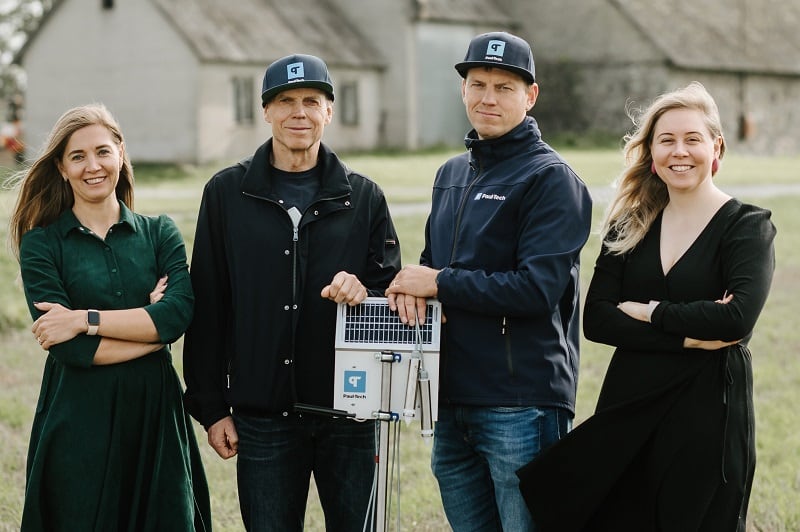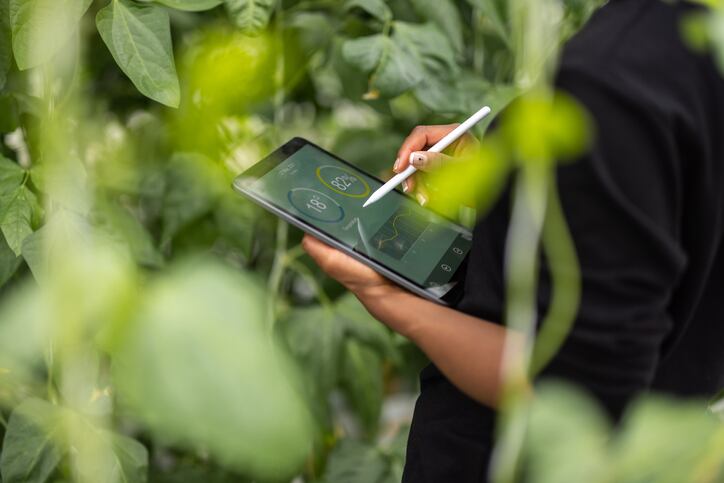The survey, based on over 800 US-based agribusiness workers, including executive decision-makers, on-farm managers, agronomists, data scientists, IT specialists and go-to-market professionals, reveals there has been a significant surge in digital transformation initiatives across agribusinesses.
It found that 9 out of 10 respondents view artificial intelligence (AI) and data analytics as crucial, transformative forces for their future, anticipating substantial changes in agriculture jobs over the next five years.
More than half of respondents plan to increase investment in on-farm robotics or autonomous systems in the next 24 months in the field (54.8%), for harvesting (60.5%) and for packing (51.3%). Moreover, over three-quarters of agribusiness professionals (76.7%) believe that given the amount of data their organisation needs to analyse, AI can improve data analysis and the accuracy of yield prediction and estimation.
In the upcoming year, 60% of agribusinesses are planning to increase their agtech budget. Their main purchasing priorities are precision agriculture tools (66%), farm management software (60%) and data consolidation (45%). The top three areas of investment in specialty crops are precision agriculture tools, farm management software and data consolidation.
A cry for better data
Yet many barriers to agtech adoption persist. An overwhelming 92% of respondents find it hard to improve on-farm activities using the current data at their disposal. Most agribusinesses are facing on-farm and off-farm challenges resulting from inaccurate yield predictions and inconsistencies due to complexities in data collection and analysis.
The survey revealed the industry is optimistic that consistent data collection, predictive analytics, AI and precision agriculture tools will boost profitability amidst a host of challenges including labour shortages (cited by over 60% of respondents), escalating costs, supply chain inconsistencies and the effects of climate change.
These challenges have pressed teams to seek more precise future crop yield predictions. Yet the study underscores the urgency to establish consistency in data collection and interpretation. While nearly 80% of businesses are at the “data exploration” stage or beyond, a mere 21.3% have fully automated their data collection processes. The remaining majority still rely on traditional means such as machinery, field apps and sensors.
As a consequence, a large proportion of businesses (73.5%) of are dedicating 11 or more hours weekly just for data collection, consolidation and analysis. Over a quarter (26.4%) are spending more than 16 hours per week.
Concerning the impact of weather unpredictability, a significant 90.2% of agribusinesses acknowledge that climate change is affecting their crop yields, with 36.7% observing it makes yields highly unpredictable.
The need for better, more accurate weather forecasting is evident, according to the Yield, with nearly 80% of specialty crop respondents believing improved forecasts would enhance crop quality.
The Yield said that even with data from established sources like the NOAA, trust in weather predictions remains low. Enhanced and precise weather forecasting stands out as a potential solution, with many seeing it as a way to boost crop quality and reduce weather-related risks.
Ros Harvey, founder and CEO of The Yield, said: “Despite a growing interest in and adoption of digital transformation initiatives, many agribusinesses today are struggling to get accurate yield predictions. The biggest challenge is leveraging available data effectively. As the 2023 AgTech Trends research reveals, there exists a palpable need for improving consistency across data collection and interpretation methods, especially as businesses aim for higher yield outcomes at reduced costs.”
A ‘vast majority’ believe AI and predictive analytics equals more profitable outcomes
Despite the challenges unearthed by research, the company stressed the silver lining from the report is in the industry’s optimism. The research revealed a vast majority believe that AI and predictive analytics can refine their data analysis processes, driving better and more profitable outcomes. Furthermore, there is a strong and growing inclination towards agricultural technologies, with professionals in the sector foreseeing significant improvements in both on-farm and off-farm processes through agtech.
Interestingly, despite the current challenges, respondents also shared a clear positive disposition towards digital tools to comprehend their data and automation to collect data more accurately at scale. The Yield said this is evident from the notable increases in budget allocations for precision agriculture tools and a future-forward approach to on-farm robotics and autonomous systems.
Harvey added: “As businesses navigate the complexities of data management, digital transformation emerges as the beacon for a more efficient, accurate and sustainable future.”





